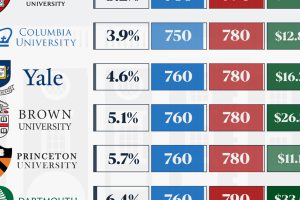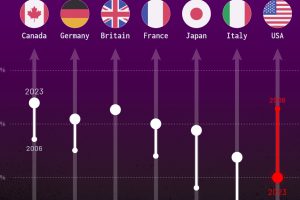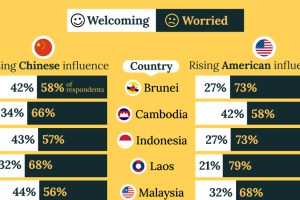When the term “intelligence” comes up in regular conversation, most of us associate it with a person’s capacity to acquire knowledge and new skills.
This type of intelligence can be measured with IQ, which helps us determine if the test taker is closer to a Stephen Hawking or a Lloyd Christmas on the smarts scale. And certainly, given no other data, a hiring manager would likely prefer to choose someone on the Hawking end of the spectrum.
But while IQ is useful, it’s also clear that emotional intelligence (EQ) can be a difference maker in any professional role.
Defining Emotional Intelligence
Have you ever met an entrepreneur with so much empathy and awareness, that they can read people in every situation and relate? Or a salesperson that will always genuinely put your success ahead of their own personal gain?
These are powerful qualities – and emotional intelligence is all about the ability to better navigate social situations, including with colleagues, bosses, and clients.
Today’s infographic comes from Aumann Bender & Associates, and it defines emotional intelligence while explaining the benefits of higher EQ in both qualitative and quantitative terms.

Even if someone is smart in terms of IQ, it doesn’t necessarily translate to career success.
In fact, emotional intelligence explains why 70% of the time, a person with an average IQ can actually outperform a person with more smarts.
Quantifying EQ
Although the topic of emotional intelligence may seem “touchy-feely” for some, the benefits of having a higher EQ are cold, hard facts to ponder:
- A whopping 90% of top performers have high EQs
- Emotional intelligence explains 58% of a leader’s job performance
- People with higher EQs make an average of $29,000 more per year than people with lower EQs
- Every one-point increase in EQ equates roughly to $1,300 in annual salary
- Research shows that EQ is crucial across all industries and sectors
So the next time you’re looking at how to get an edge at the workplace, consider that it’s not just knowledge or skills that you should be after.
Sometimes there is a higher ROI in the “soft skills”: being more self-aware, learning how to effectively express your opinions or emotions, finding ways to bounce back from adversity, or managing stress or negative emotions can be more important than technical skills in improving career performance.





